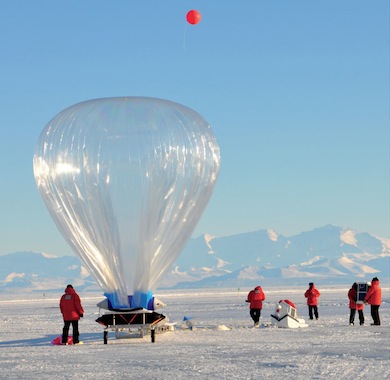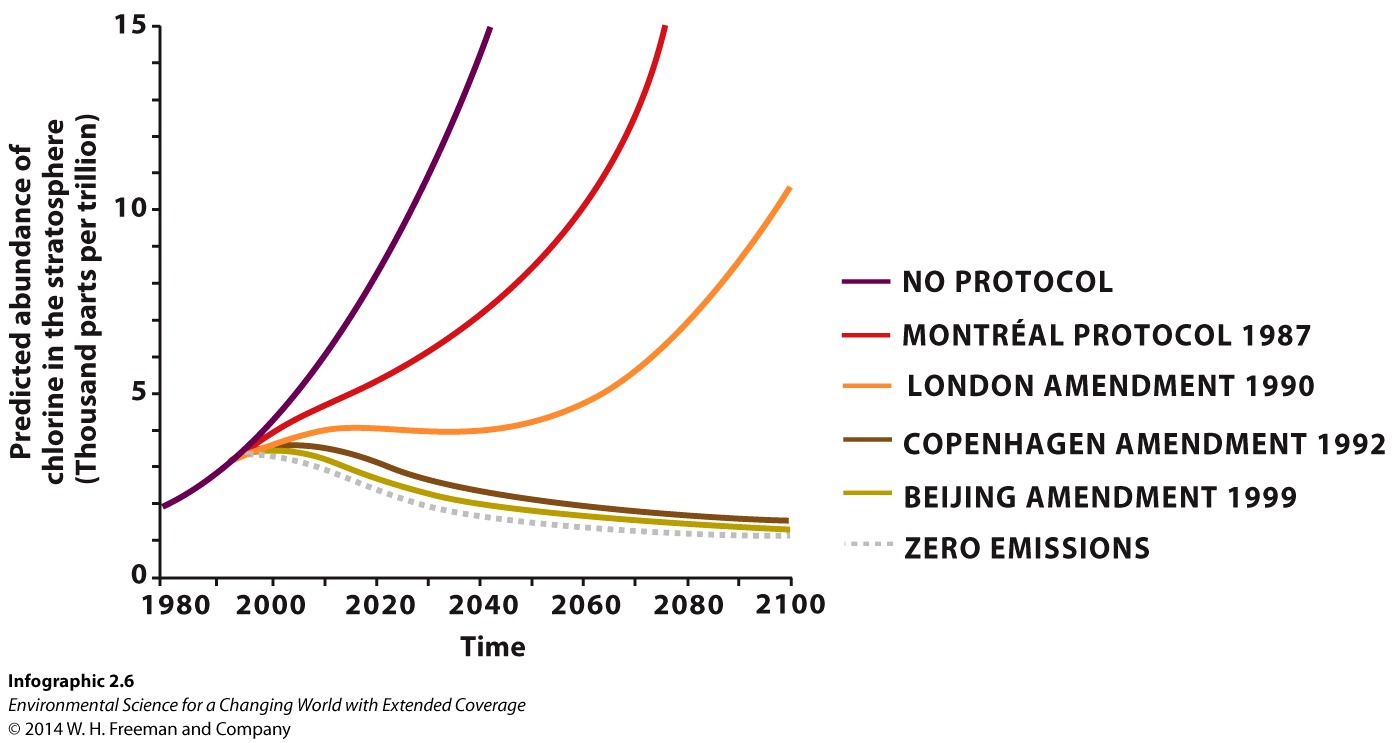Chapter 2. Chapter 2: Science Literacy and the Process of Science
What is information literacy...

Guiding Question 2.5
How did scientists, policy makers, and world leaders take the science about ozone depletion and turn it into policy?
Why You Should Care
As with experts in any field, scientists often have a difficult time getting non-experts to understand the value and implications of their findings. The Montréal Protocol is one of the best examples of scientists succeeding at using evidence to lead to policy changes that are helping a negative situation.
Question Test Your Vocabulary
Choose the correct term for each of the following definitions:
| Term | Definition |
|---|---|
| Ma8iYMEE+NWbsjg+poZgFDrp5WHoT9LCu6B6fmCwFpCzFJrE9q4Yj9n3nQ0VRMIYKk+bt2ae049f63DBVMVnpQsHb1UxywK2R44d6DthWyDNJxqGxIy5hg== | Plan that allows room for altering strategies as new information comes in or the situation itself changes. |
| DRj+OZ89b8uKPR4Zpj+43xoWg0JUfOWMMHbZjISY7EMpTzGakhTUIPbddbsjia6T8JRbPtRxzFnpVqHenx4YYasu3OkfF0r4cpirrR+3sl2nLq1sQaT9lw== | Acting in a way that leaves a safety margin when the data are uncertain or severe consequences are possible. |
| 6hledBYGz+OAxvL2W5tPr8fvQSDeBClof9vZwPOmopM5Gh0IKvHRcGUMdgPiJC/CRF1VOi0B4G3XRQqjzbt7h6K6xfZAWYbBQAIgB9Sk+NGhMvsya6C5/A== | A formalized plan that addresses a desired outcome or goal. |
| VSXHZcjdMf43VBE4g36BuLqBFLFyDZj+3rDQlGy0gas1g18bmPcOSlZkokWWbhPfwU0g4HjGd6FIcCeBFNjI03D7Tzv8iTTS14GOfDMKK6xAExn07IkNzA== | A plan to deal with the problem of ozone depletion, most notably by phasing out the use of dangerous chemicals such as CFCs. |
| n0cXbu12b6174bjxmzkIPlQLi6Ii+v81n9DYtEh8IJvtKhrW9BgQgiizjdcDicZNFmluvTTB/PNN47hi+sBInVLG+fRPIod/ufzeXh6NvapSI6oU6/FmBw== | The mathematical evaluation of experimental data to determine how likely it is that any difference observed is due to the variable being tested. |
Question Sequence
Question 2.1
aRrc/xa3JF7Hcp3+n5qZSKFLzWiKFV3FKncHYOgmZDrD7X46hyE8sXNZUxmSfm9ZtIOPC3mLsj/wbKSmSMQuD8rXBBNL6mCike/YylgkhZnkriO3GNiuuYnC9pf7Z726+4OUyXFTXQr7hRrSmTvlh1c0EcPjuZ7MFQW44nPjahgsRyKLwfyPFNMXiZA=Question 2.2
W8lqD9gwPacDwdQl5GBkdtKgDwMXBc7kLmuJuJRZm8yOQojAMn1rcF5Cod49n1j4N3SSzqRVO+YPBlT82QvpkqZX/st2w5/LtZV+AIjUCXYq0R7ULxAxmtZT+AnOyFslp5Cxllt5Ie8=Question 2.3

Question 2.4
dYsrcRcfsDF9bs3cqft5wIayepk8KjyaYBENLz6gs7hJyqx8jy0H9wdKZsXBAaBUVMo/CmNaCpbd9sy9B0VumhrLO03z1RwGy7/QevJUtNBgwcpAYJLVtI6mXaE=Question 2.5
B6e/YyRCN8zX4AQF0AuPIHqhcj7yZ4DuGVlpDgf81r4QomcT6K7wg4Kg//nZXklrPnQWxuW2vWATohXWhlWFEnOxEIVQS7AUcDbfGD+tBqYhbGN6vCnctDrSwwVAvGaEbesGmvj++bYmNCqdD79gsLUZSQM8dfRsW80nY7oxtnCtFHDQRINgsfT8SXmxdp2dl7UwjRG9rEBzeVPJPOJon88gkU4=Question
Short-Answer Questions
Similar to the findings that CFCs released by human activity into the atmosphere coincided with depletion of the ozone layer, atmospheric scientists have also discovered a relationship between the human release of so-called "greenhouse gases," such as carbon dioxide and methane, and an average increase in global temperature. Like the Montréal Protocol, the Kyoto Protocol was an international compact to reduce emissions of these gases, but unlike the Montréal Protocol, it was never ratified by enough countries to make it a viable agreement.
luof2nOe6Mfok7lhujAcN2irP4ifTX1JeebeXQUH8udtLvFKXuyC5pnjTkBji8WgJvhPGM+IWHqYdzj2AKPfYAk5J1bCP2XJxiVWUNKE7AltY7R58frbX+ZXmm7RFbwGTzpjFyvsDU/nGayBCycn8GnRHB5eg4K2LpH392S+Iujb877y8SgY42x+ARcPavoVW87OGL9FVAgQkfHH6KyXzaDUiPp/6laqZE3pPXrX52YvonULjIQOnx6xEVT5aaYH0oAGTfPSlsOgpJ+aLIDSEQ== AWm456kVCPEIPBn5JZuM591hKEy4G/CxYiVxdm0GtCZerhrTELNvBcfranXW3/AUiJj8bN4Bk1jiHE2k7USOWar1Sy4m2dbyQeODisTT/yOhqN9fLcpf+wKkPf3yD0VQ4ZYwHaKNtoWQDN1s 1S9rSFeme3+UwfJMOg5M9CCBEDfSs5LJXq63mIZ42FWDaizBrtnXaVvT42pcZD9yG2+3ohhAtVytMTKnj/2mL/j77aj5h3OvcaLU861GjdrMLYVMVBMAWrgP1RjxSZa4Agi6n4oO/sJibCWuFeBKLukQEhUM8/lBC8PCYNZYDj5NYcSx447so+T6ZEGWFtVR+WE25LZrUk5c9t3+ArtuEIcjS10nofcZM3ugB0U318jdOOnltXmFFRkm+hEQJZkUbXThV3d/hSHSuJP+gpU2Mke3br5NGOSGfSI91MZkTfKCYEqvxe/OwoYiRRYyTkuO 7B6Gytpsb72JNW4ln0wg3t0i1dMJzCpjRACApNsuX6yBtAqU0l4jRydXx6lhn9OnRNS2iPiwQ6EWNFi4lyySKR3bqbqu3ZegGGfRQk4hmagFxf1q1rZz0yA3HaStk0tXhDA5Ry2ig2Bspjx8KZgFCELISO0qSWlm5DXsZ0n7pmEv9wBcbdR9mSH/aMTf7Knrb4MAF6/ZaVJh43ihqQZvwC7yriJ490d0sAy0MZoP99njdkNMl8Kh4b4ViPuopxVnviLLcd/yypbKiYd4PXTkN4oUE5nnGXi0V0b0390/r3WHIX7nAMzJmAH3gmg=2. Yes, those involved decided that the evidence of potential negative repercussions was conclusive enough that action should be taken.
3. Experiments do show causation more clearly than observational studies, so the short answer is yes, experimental evidence would likely be more convincing. That being said, it is difficult to impossible to experiment on a scale large enough to simulate the atmosphere, so any experiment used to show human-influenced global climate change could potentially be as suspect as the current observational studies. Furthermore, you have learned that there is often a disconnect between science and public policy. A legislature with political reasons not to act is apt to ignore any evidence that isn't 100% conclusive, which (as you have learned) doesn't happen in science.
4. There are many examples of this, but a notable obstacle is the perception that science "proves" something.